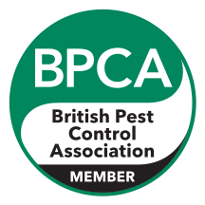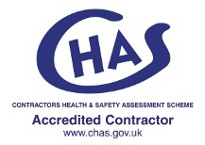
Welcome to Wasp Nest Removal Chelmsford We can help with all your Wasp Nest Removal Problems.
Pest Control Chelmsford are committed to providing a Wasp Nest Removal and prevention service in Chelmsford which is efficient, dependable and a safe working environment for our customer whilst complying with legislative requirements.
Schedule a call
Get a quote
Now it is easy and fast and you can book a consult within minutes!
We have gained many customers through recommendations over the years, both from the commercial and domestic market.
St George’s Pest Control Ltd is a member of the BPCA (British Pest Control Association) and has several accreditations including CHAS, Constructionline, Safecontractor, CSCS and have been approved by the Essex County Council – Buy with Confidence scheme.
For all your Wasp Nest Removal Problems and for a Wasp Nest Removal Quote please contact us on 01245 327 274
About Wasps
During the summer months Wasp Nest Removal Essex are busy treating and removing wasp nests throughout Essex and London.
We use the safest methods of eradication for the safety of our technicians, environment and for your home and family.
Wasp nest removal Essex have a team of highly trained and experienced technicians based throughout Essex and London and we offer a same day service to remove your wasp nest.
We are proud of our quality of service and do not sub-contract any of our work.
Our staff will assess the safest method of control and decide if the nest can be located and accessed from inside the property. An inspection of the loft or roof space will be carried out; if the nest is accessible it will be removed using a “knockdown” oil-based insecticide.
If the nest is inaccessible from the inside of the premises, then a dust formulation insecticide is applied into the wasp nest entrance. The returning wasps become contaminated with the insecticide and carry it into the nest and it is destroyed within a few hours.
Our wasp nest removal and treatment services are all guaranteed. Although over 95% of wasp nests are eradicated with one treatment, if a second visit is required, then this is carried out FREE OF CHARGE.
A wasp sting can be fatal in extreme circumstances. We would recommend that you do not aggravate the nest by trying to treat it yourself. Our technicians have all the necessary Personal Protective Equipment and allow them to safely approach the nest and quickly apply the appropriate insecticide formulation.
Life Cycle of Wasps
There are three main types of wasp in the UK. They are the Common Wasp, the German Wasp and the large aggressive Tree wasp or European Wasp.
During April and May the queen wasp emerges from hibernation after lying dormant through the cold winter months to search for a new nesting site location.
Once the site has been selected, she starts the construction of a new nest which is approximately the size of a golf ball. The nest is made of a papery material which she makes by chewing wood and mixing with salvia and weaving on to the nest.
The nest begins to form with a low number of cells within which she lays eggs. The eggs hatch into small grubs which the queen wasp will feed until they are ready to complete their metamorphosis and emerge as worker wasps.
When there are sufficient numbers of worker wasps to assist in the nest building, the queen will remain in the nest and continue to lay eggs in the empty cells. The workers continue expanding the nest and building new plates of cells. The nest expansion continues until there are 1000’s of wasps in the colony.
As late summer approaches, males (Drones) and young queens are produced. The queens leave the nest and mate with the males and then search for a dry and safe location to overwinter.
As autumn continues and winter approaches their food source starts to diminish and the wasp numbers decline and finally disappear. The only survivors are the overwintering new queens.
As the weather warms in the following spring the whole cycle of the wasp begins again.
Wasp Stings
Insect stings are common and usually cause no more than a minor irritation; however several stings can be painful and cause an allergic reaction. In the UK, insects that sting include wasps, hornets and bees.
When a wasp or hornet stings, venom is injected which causes red, swollen and itchy skin, this can be painful and could last for several days. The severity of bites and stings vary depending on the sensitivity of the person and the type of insect. In severe cases some people can have a serious allergic reaction (anaphylaxis) and this will require immediate medical treatment.
You should call 999 and ask for an ambulance if you experience any of the following symptoms following a sting or several stings:
• Wheezing and difficulty breathing
• Nausea, vomiting or diarrhoea
• Fast heart rate
• Dizziness or feeling faint
• Difficulty swallowing
• Confusion, anxiety or agitation
If stung by a wasp, wash the affected area with soap and water. Place a cold flannel or cloth over the affected area to reduce the swelling.
If stung by a bee, remove the sting if possible without squeezing the venom sack and wash the affected area.
Other services offered are: Wasp Exterminator, Wasp Removal, Wasp Nest Exterminator, Wasp Control, Wasp Control Price, Wasp Prevention, Wasp Infestation, Wasp nest in Shed, Wasp Nest in loft, Wasp Problem, Wasp nest in Garden, Wasp nest Removal Costs. We also cater for Wasp nests in Domestic and Commercial properties throughout Chelmsford.
FAQ
Q: I am finding large wasps in my home; I think I may have a wasp nest.
A: If large wasps are found in the house from November to March, they will be queen wasps awakening from hibernation. This time of year is a little too early for an actual wasp nest and any nest seen will be an old one from a previous year and is never used again. The odd wasp can be sprayed with a fly killer aerosol bought from the local store.






